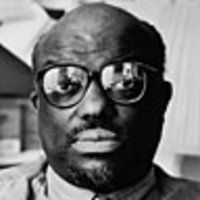
As Russell Simmons and his crew prepare for the first and probably the last hip hop inaugural ball, those with an eye on Amerian life may find it ironic. After many attempts made against it by responsible people, the idiom of hip hop may well be on the way out. The murders, the shootings, the corruption, and every other reprehensive innovation in conduct that came into popular entertainment in the name of "keeping it real" finally seems to be facing an audience that has grown up, changed direction, and become bored. We are approaching a time of no mo hos. No mo bitches. No mo black n***r motherfuckers. The denigrated appear to be losing a taste for the hatred, the pornography, the violence.
We are approaching a time of no mo hos.
Let's get one thing straight. Black Americans are not the only ones capable of embracing the most pernicious stereotypes and declaring them emblems of liberation. The important and insightful reporting found in Ariel Levy's Female Chauvinist Pigs makes a case for how American women seem to have bought into the happy slut vision of themselves that has come from the world of pornography. As never before, they feel particularly liberated, or equal to men, at wet t-shirt contests, dressing like hookers, and when meeting friends in strip clubs. Imagery once considered suffocatingly sexist is now acceptable because younger women think themselves free of the repressive modes out of which feminism expressed itself in the early 1970s. They just want to have fun. The popularity and acceptance of glittering, middle-aged sputum like Madonna and the young, the restless, and the hollow Paris Hilton must mean something.
The trouble in black popular culture over the last 25 years is perhaps much deeper and more poisonous. Every so often this boil of decadence largely delivered by extreme hip hop is nicked and the public gets a good serving of stank cultural pus. In my own case, this trouble has been obvious for a long time.
I became an enemy of hip hop more than 25 ago when my daughter was less than ten and recited proof that all rap "songs" did not have bad words in them:
I'm a ho you know I'm a ho I'm a ho because I tell you so
That did it. I imagined little black girls across the nation walking along and happily denigrating and dehumanizing themselves. No one had ever known or heard of any such thing. A serious cultural crisis was emerging. It was soon a new version of crack in which all of the worst elements of black culture were seized and promoted as the most authentic because they came from the street (where, as you know, the truth hangs out more than anywhere else).
A strange totalitarianism began to take place in the black community. In order to be up to date, everyone was supposed to enviously genuflect and drool before anything that guaranteed the power arriving from money, force, and anarchy—the ethos of pimping, drug dealing, hustling, and gang banging. I soon thought of this new and amoral cynicism as the most pernicious form of minstrelsy ever created and popularized. This was distinctly different from adolescent entertainment and the school that attempted to push identity politics into the idiom in terms of being "conscious." We all saw one more tasteless and theatrically hostile buffoon after another appear and try to profit from the gold rush side of American culture that made possible the pet rock. Seeing it gave me the same feeling of unease and repulsion I had whenever witnessing self-flagellation.
Why was there no outcry across the width and depth of our nation?
Well, there was and has been a battle against this stuff since C. Delores Tucker, a black woman and civil rights activist, took the battle to the corporations in the early 1990s. She got some action, and so did Tipper Gore, because both were appalled at what was starting to appear and be sold to our children. Tucker got some traction because it was hard for white corporate executives to argue for the calling of black people n***rs, black women bitches and whores, and the promotion of drug dealing as no more than a risky way to become wealthy. But once black executives began to get a leg up in the business they did what canine do when lifting a leg. They used every argument possible to defend what their companies and new minstrel entertainers put in the world. It was too profitable to be concerned about its effects. They could give a fuck about the insulted, the mistreated, and the misled.
These people were able to weather the periodic storms of protest and outrage because they had a good deal of help, just as Enron had, when their fraudulent product stacked up phenomenal digits. The reason attention strayed from the subject is not because the issues raised by extreme hip hop lack interest. They are provocative and offer us some way into better understanding the decadence and decadent values of our time. Never fail to think about the fact that huge corporations profiting from hip hop have plenty of stock in television and every other form of media. That is surely one of the reasons that so much of our network and cable news submits to the air-headed promotion of trivia and poisonous fluff.
For instance, look at Diane Weathers, the former editor of Essence Magazine—the biggest selling women's magazine for black women. After being startled by the pornographic hatred of women in the lucrative extremes of hip hop that her daughter was in the process of becoming accustomed to as she neared adolescence, Weathers conceived a series of forums and magazine articles on the misogyny in hip hop under the banner "Take Back the Music." Sales of Essence went up as many thousands of people, black and white, supportively responded, and the magazine got more media attention than it had gotten in years. Then Weathers left and Essence became all quiet on the bitch and ho front. One wonders if Time Warner, which owns Essence, had anything to do with it. Don't diddle with the game while it's rolling.
Certain things have become apparent. From as far back as the Great Awakening of the 18th century, black Americans in musical situations were observed to often have something that was not exclusive but was charismatic enough to wing listeners into their own humanity. By the time that Ray Charles had become popular it was known as soul and could be heard in singing and the playing of instruments.
That was then—now is another time. We are in a moment where the big homing bird of the human soul sometimes loses its way or consumes the spiritual poisoning of our aggressively irresponsible popular culture. Heaving is then taken as artistic expression. Yet pop culture always warns of one fact: any product can descend into the darkest aspects of show business if a big enough stack of money is put on the table. Hip hop, at its worst, moves both left and right of civilization.
Basically on the quiet, or beyond the heavy metal roar of our media, people have been fighting the new minstrelsy for years, as Diane Weathers discovered. This rebellion against electronic denigration, misogyny, and the perpetuation of stereotypes is a new version of the civil rights movement. It will take on another presence in the era of the Obama presidency, one that may change our lives for the better.
This is made quite clear in Byron Hurt's ten-minute documentary, Barack & Curtis, available on YouTube. It is an update of his full length documentary, the somewhat apologetic but essentially blistering Hip Hop: Beyond Beats and Rhymes. An important virtue of Hurt's first documentary is the featured space given the hot and eloquent voices of women involved in the 2004 Spelman College protest against the appearance of rapper Nelly because of his infamous meat-rack video '"Tip Drill." Both films quite seriously question and call out the cretinous conception of "black masculinity" pushed in the idiom. Attacking and making fun of the cult of ignorance, bad taste, and imbecilic behavior that has come out of hip hop are some of the things that Aaron McGruder does best in his rather daring Boondocks television show. One can also see this cultural boil addressed, finally, in the new issue of Crisis, the NAACP magazine. The article is called "Stereotypes for Sale." Better late than never.
Rumor has always had it that the civil rights establishment was bought off for all these years by hip hop moguls who know how to button a lip with a little bread. During the Don Imus controversy over calling the black women of the Rutgers basketball team "nappy headed hos," only Oprah Winfrey's "town hall meeting" addressed this issue. There it is.
Unfortunately, intelligent white people—as I learned a few years ago arguing about hip hop with Charlie Rose on his show—are usually no better than anyone else at separating the triumphs of black culture that have universal value from the dehumanizing trash that dumbs down for no purpose other than profit. If the word "racist" is used against them as a dismissal of their perspective, most whites will clear the room. Having overdosed on the idea of cultural relativity, they are afraid of being seen as lames or accused of misunderstanding something and imposing "white middle class standards" on matters beyond their comprehension. Black academics talk a lot of stuff but are too often afraid of being out of step with the trends swallowed by their students with whom they must be popular.
None of that is as important as the fact that the disdain for the dehumanization of extreme hip hop continues unabated. Though this does not get enough attention as yet, the natives are restless, are marching, and will not be lulled back to sleep by some hip hop beats. All the inspiring and slimy details of the ongoing protests and demands are to be found on the website of " Enough Is Enough." BET has already found this out due to the unrepentent work of Enough is Enough and Industry Ears, an organization equally dedicated to watching media and keeping the clay feet of the corporations to the fire.
Which makes it so ironic that Ludacris, Jay-Z, and others should be headlining parties at Barack Obama’s inauguration. One of the most important aspects of Obama's election is that he, his wife, and his children represent an American vitality that is not at all corny but is a strong retort to the fundamental childishness common to the self-centered criminals and exploiters who always threaten civilization. But those who have profited from hip hop dreck are different from the hustlers of old. They have now appropriated every avant garde or conservative argument for freedom in the arts, in speech, and every idea about the right to be culturally unique but not suffer for it. This was perhaps first learned from Hugh Hefner and Larry Flynt.
I believe that we are now somewhere up the road and don't think that those arguments in extreme hip hop's defense will make it any easier, from this point on, to call the president a n***r or his wife and daughters bitches and hos. This should make everything better by spreading more comprehensive humanity from the top all the way down to the ground.
Stanley Crouch's culture pieces have appeared in Harper's, The New York Times, Vogue, Downbeat, The New Yorker, and more. He has served as artistic consultant for jazz programming at Lincoln Center since 1987, and is a founder Jazz at Lincoln Center. In June 2006 his first major collection of jazz criticism, Considering Genius: Jazz Writings, was published. He is presently completing a book about the Barack Obama presidential campaign.





